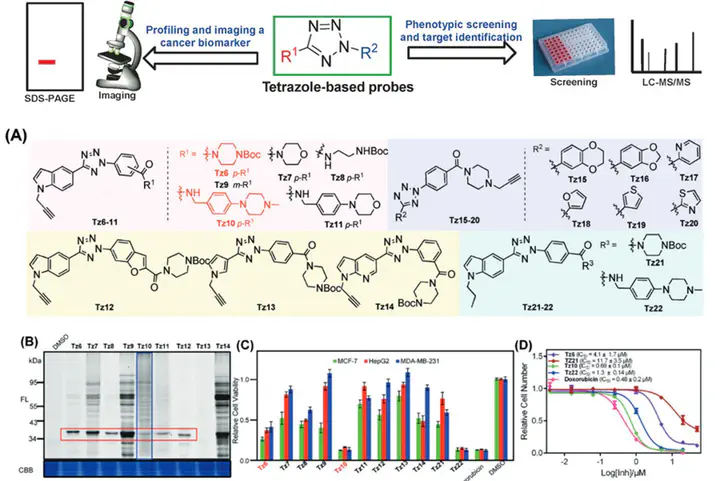Tetrazole-based probes for integrated phenotypic screening and chemoproteomics
 © 2017 Wiley-VCH Verlag GmbH & Co. KGaA, Weinheim
© 2017 Wiley-VCH Verlag GmbH & Co. KGaA, WeinheimAbstract
Target-identification phenotypic screening has been a powerful approach in drug discovery; however, it is hindered by difficulties in identifying the underlying cellular targets. To address this challenge, we have combined phenotypic screening of a fully functionalized small-molecule library with competitive affinity-based proteome profiling to map and functionally characterize the targets of screening hits. Using this approach, we identified ANXA2, PDIA3/4, FLAD1, and NOS2 as primary cellular targets of two bioactive molecules that inhibit cancer cell proliferation. We further demonstrated that a panel of probes can label and/or image annexin A2 (a cancer biomarker) from different cancer cell lines, thus providing opportunities for potential cancer diagnosis and therapy.
Highlights:
1. The photo-cross-linking of tetrazole is investigated for photoaffinity labeling.
2. Functionalized tetrazole probes are designed, synthesized, and applied to phenotypic screening for bioactive hits against cancer proliferation.
3. The primary cellular targets of the screening hits are validated by chemoproteomics.
4. Tetrazole probes are found with specific labeling towards endogenous Annexin A2.
Supplementary Information can be accessed here.